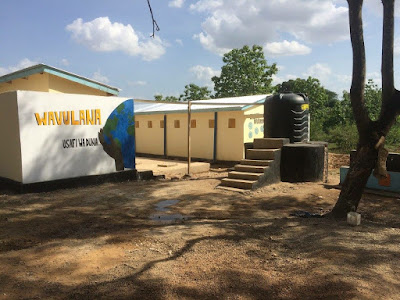World Climate Simulation
Last week as part of my Global Environmental change module, we took part in the world climate simulation. As part of this, we had to act as a negotiator at the united Nations Climate Change negotiations. I was part of a team of 4 acting as delegates from the united States. In the 3 hours, teams from each region had to negotiate to try and get temperatures down to 1.5℃. We managed 2.1℃. It showed how challenging it can be to reach agreement between different regions, how complicated politics can be and how tensions can rise very quickly.
The exercise is framed by current climate change science, using the interactive C-ROADS computer simulation which allows participants to find out how their proposed policies impact the global climate system in real- time. We went into this not really knowing how COP (Conference of the parties of the United nations agreement on climate change) worked, and we left with so much more knowledge and understanding.
I would definitely encourage students (not only geography), schools, lecturers, businesses, leaders, everyone to get involved. Below is a video of how this climate simulation works:
Mock video of how the world climate simulation works
But what does this have to do with Water and Environmental change in Africa?
COP22 was held in Marrakesh 7-18th November 2016. For the first time in history, a water action day was the highlight of the third day. World Water Action day aimed to highlight the water sector as a provider of solutions for implementing the Paris Agreement (COP21).
Countries have identified water as key to adaptation in 93% of their national climate action plans. Water is the key to food security, human health, energy production, industrial productivity, biodiversity, as well as a basic human need. Therefore, ensuring water security means ensuring security in all these domains.
From the Water Action Day, "Water for Africa" was officially launched. This initiative aims to mobilise different international political, financial and institutional partners to develop an emergency action plan to confront climate change and improve water and sanitation services and management in Africa.
Concluding thoughts
Water needs to be seen as an end in itself, rather than merely a means to an end.
The importance of water seems to be highlighted through its critical role in other domains. It is a start that the sheer importance of water is now being acknowledged on the platform of COP, through the action day. However, I believe more needs to be done, to bring to the attention, that climate change is drastically changing the distributions of water, and this has already and will have many negative implications for many. Long droughts and extreme rainfall, are becoming common for many, so how can this is increasingly unreliable resource be the solution for all the problems arising from Climate Change?
Africa is the most vulnerable to climate change. Therefore, effective funding and management is necessary, to adapt to the threat of climate change. The $100bn per year promised to be pledged by the developed countries by 2020 in Copenhagen 2009, could be key to this. Although by the end of COP22, there is said be 'extreme disappointment' in the lack of progress in agreement to the distribution of the funding, which has been pushed back to 2018.
Adaptation is key to the survival and development of Africa. A roadmap drawn up by developed countries and presented at Marrakesh allocated just 20% of climate finance, to efforts limiting the damage caused by climate change. The remaining 80% of this money would be spent on mitigation (cutting greenhouse gas emissions). However, I believe that this is an unfair distribution, as the need for adaptation is particularly important in developing countries, which are hit hardest by climate hazards such as droughts and floods.
Throughout this blog I have illustrated through East Africa that water supply is changing and is becoming extremely unreliable. However, this is not the only issue, demand is also changing, it is increasing. One effect of this is changes in land-use. Therefore, next week's post will focus on land use change, and how this, in conjunction with climate change, is affecting Water in Africa.





No comments:
Post a Comment